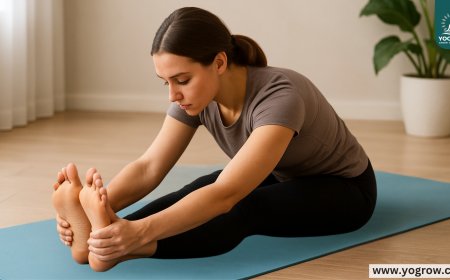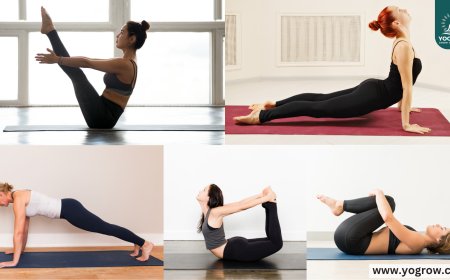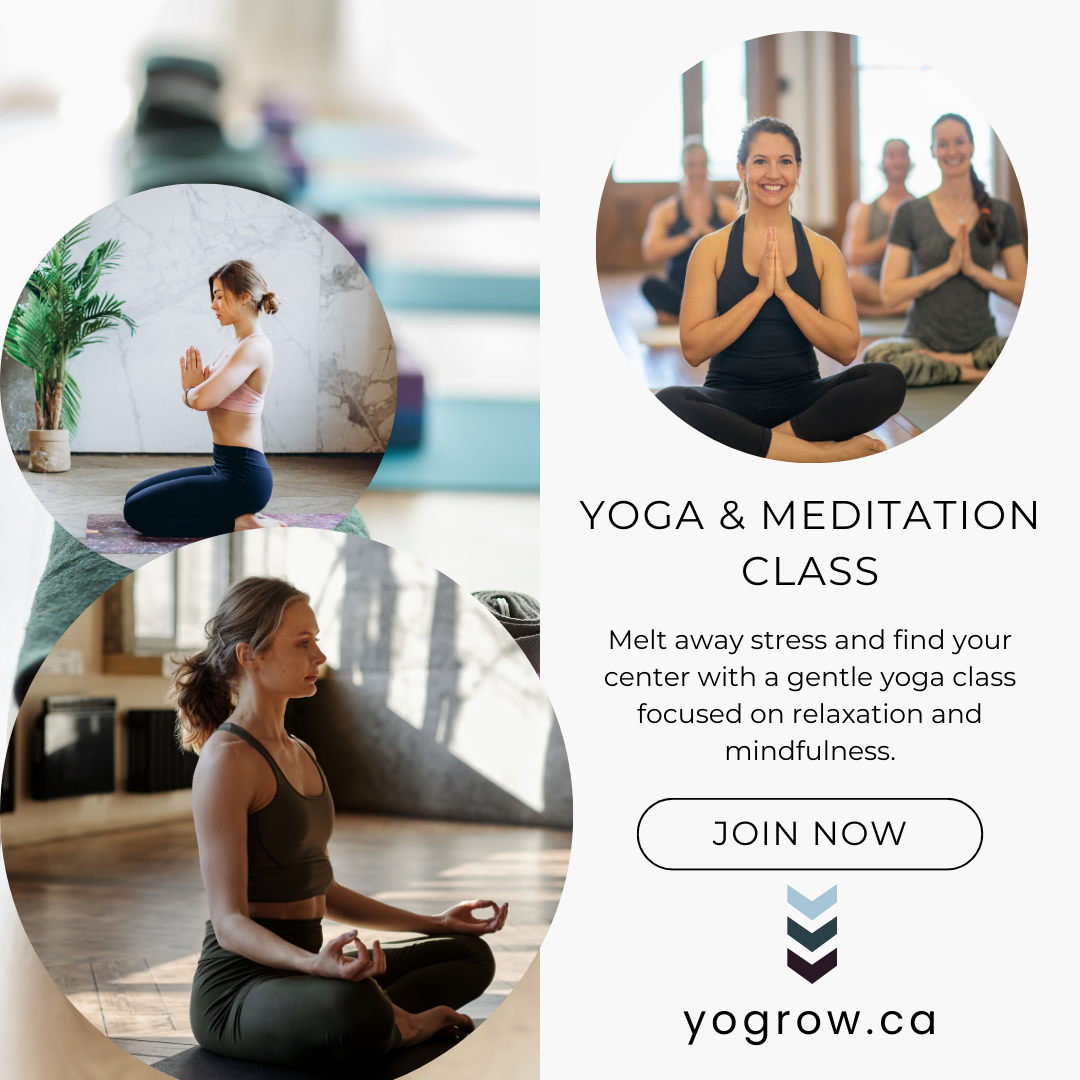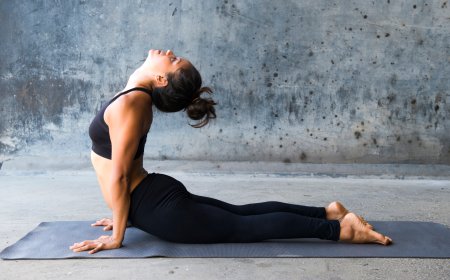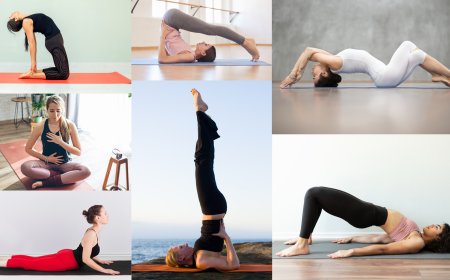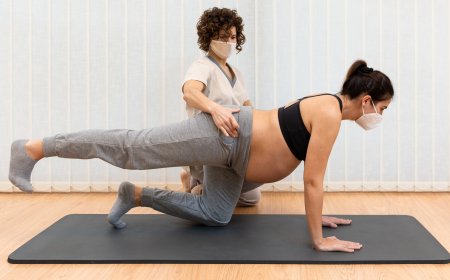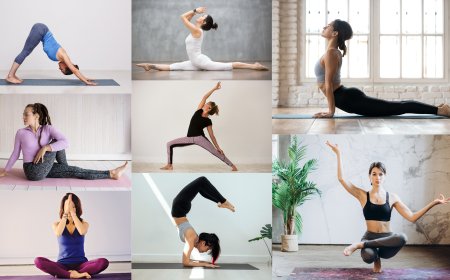Struggling with Shoulder Stiffness? You Need This 5-Minute Fix
Discover 5 powerful moves to fix tight shoulders, improve posture, and reduce pain. Backed by expert advice and yoga tips from Yogrow.ca.

Do your shoulders feel stiff, achy, or perpetually tight? You're not alone. Tight shoulders are a common complaint, especially among those with desk jobs, sedentary lifestyles, or high stress levels. Addressing tight shoulders isn't just about comfort—it's essential for mobility, posture, and long-term health. In this guide, we’ll explore the benefits of releasing tight shoulders, supported by expert-backed advice and practical yoga-inspired solutions.
Benefits of Releasing Tight Shoulders
1. Improved Posture and Spinal Alignment
Tight shoulders often pull the upper back and neck forward, contributing to poor posture and even spinal misalignment. Loosening these muscles promotes better posture, easing strain on the neck and lower back. As this Back Intelligence article explains, targeted exercises can significantly help correct rounded shoulders.
2. Reduced Neck and Upper Back Pain
Tension in the shoulders often radiates to the neck and upper back. Releasing these muscles helps alleviate chronic pain and stiffness in these interconnected areas. The benefit is not just physical comfort, but improved sleep and reduced mental fatigue.
3. Better Range of Motion and Flexibility
Releasing shoulder tightness restores your ability to move freely. This makes everyday tasks easier and enhances your performance in workouts or yoga flows. Want to build strength and flexibility simultaneously? Check out Warrior Pose Benefits: Strength, Focus & Inner Power to deepen your practice.
4. Enhanced Circulation and Reduced Tension Headaches
Chronic tightness can restrict blood flow, causing tension headaches and fatigue. Releasing those muscles promotes better circulation, oxygen delivery, and overall energy.
5. Emotional Release and Stress Reduction
Your body holds stress in physical ways—especially in the shoulders. Loosening these muscles helps release stored tension, promoting a sense of calm and mental clarity. This mind-body connection is at the heart of many yoga practices.
5 Practical Steps to Fix Tight Shoulders
Let’s get hands-on. Here are five effective moves that can help you release shoulder tension and regain freedom of movement.
1. Shoulder Rolls
Start with simple shoulder rolls. Inhale as you raise your shoulders toward your ears, then exhale as you roll them back and down. Repeat 10 times. This warms up the joints and stimulates blood flow.
2. Thread the Needle Stretch
Come into a tabletop position. Slide your right arm under your left, bringing your right shoulder and ear to the mat. Hold for 30 seconds and switch sides. This stretch targets the rhomboids and trapezius, which often harbor deep tension.
3. Wall Angels
Stand against a wall with arms at a 90-degree angle. Slowly raise and lower your arms like snow angels, keeping them and your back pressed to the wall. This strengthens the upper back and counters shoulder rounding. Need visual cues? Refer to PhysioEffect’s shoulder stretch guide.
4. Eagle Arms Stretch
Extend your arms forward, cross the right arm under the left, and try to clasp palms. Lift elbows and stretch forward. This targets the rotator cuffs and opens the upper back. Hold for 30 seconds.
5. Puppy Pose (Uttana Shishosana)
From a tabletop, walk your hands forward and rest your forehead or chin on the mat. Keep hips above the knees. This restorative pose deeply opens the shoulders and upper spine.
Conclusion
Tight shoulders may seem like a minor issue, but the impact they have on your posture, mobility, and mental clarity is major. By practicing these five movements regularly, you can experience noticeable relief and improved well-being.
Still working on your overall flexibility? Don’t miss our guide on 7-Day Yoga Routine to Touch Your Toes—a perfect companion to your shoulder work.
Ready to feel the difference? Explore more guided yoga flows at Yogrow.ca or drop a comment below sharing your favorite stretch!
What's Your Reaction?
 Like
0
Like
0
 Dislike
0
Dislike
0
 Love
0
Love
0
 Funny
0
Funny
0
 Angry
0
Angry
0
 Sad
0
Sad
0
 Wow
0
Wow
0



